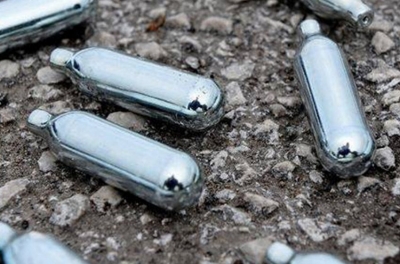Has laughing gas killed anyone?

When we talk about greenhouse gases, we often think of carbon-dioxide (CO2). But did you know nitrous oxide (N2O), also called laughing gas, is a potent greenhouse gas, with ozone-depleting property?
You must be aware that a greenhouse gas is a gas that traps heat in the atmosphere and keeps the planet warm. This process called the greenhouse effect is a good thing. Without it the world would be a frozen, uninhabitable place. However, too much greenhouse gases in the atmosphere can cause the temperature to increase out of control. The more greenhouse gases in the atmosphere, the hotter the earth will become. It changes the Earth's climate system and affect all forms of life.
The main gases responsible for the greenhouse effect include carbon dioxide, methane, nitrous oxide, and water vapour. While carbon dioxide and to some extent methane have gained the recognition as climate change villains, N20 emission has largely been ignored in climate policies, despite its significant contribution to climate change.
A 2020 review of nitrous oxide sources and sinks found that emissions rose 30% in the last four decades. Nitrous oxide is responsible for roughly 7% of global warming since preindustrial times. Most N20 emissions have come from emerging countries like India, China and Brazil.
What are the sources of N20?
Nitrous oxide in the atmosphere comes from both natural and anthropogenic sources. The largest source of nitrous oxide is agriculture (73%), and the majority of agricultural emissions result from usage of nitrogen fertilizers and ill-management of animals waste.
Fossil fuel combustion and industrial processes are the other important source of nitrous oxide emissions. Biomass burning, atmospheric deposition and wastewater treatment are the other sources.
Why is N20 a cause for concern?
Like other greenhouse gases, nitrous oxide absorbs radiation and traps heat in the atmosphere. N20 has a long lifespan in the atmosphere-about 114 years.
N20 is nearly 300 times more potent at warming the planet than carbon dioxide, which means that even small sources of emissions can have a significant impact on the climate.
N20 has emerged as the most critical ozone depleting substance. It is stable in the lowest level of the atmosphere, the troposphere and acts like a greenhouse gas. When it migrates up to the stratosphere, it reacts with ozone and depletes it.
The growing demand for food and feed for animals and increased usage of fertilizers will further increase global nitrous oxide emissions.
Picture Credit : Google